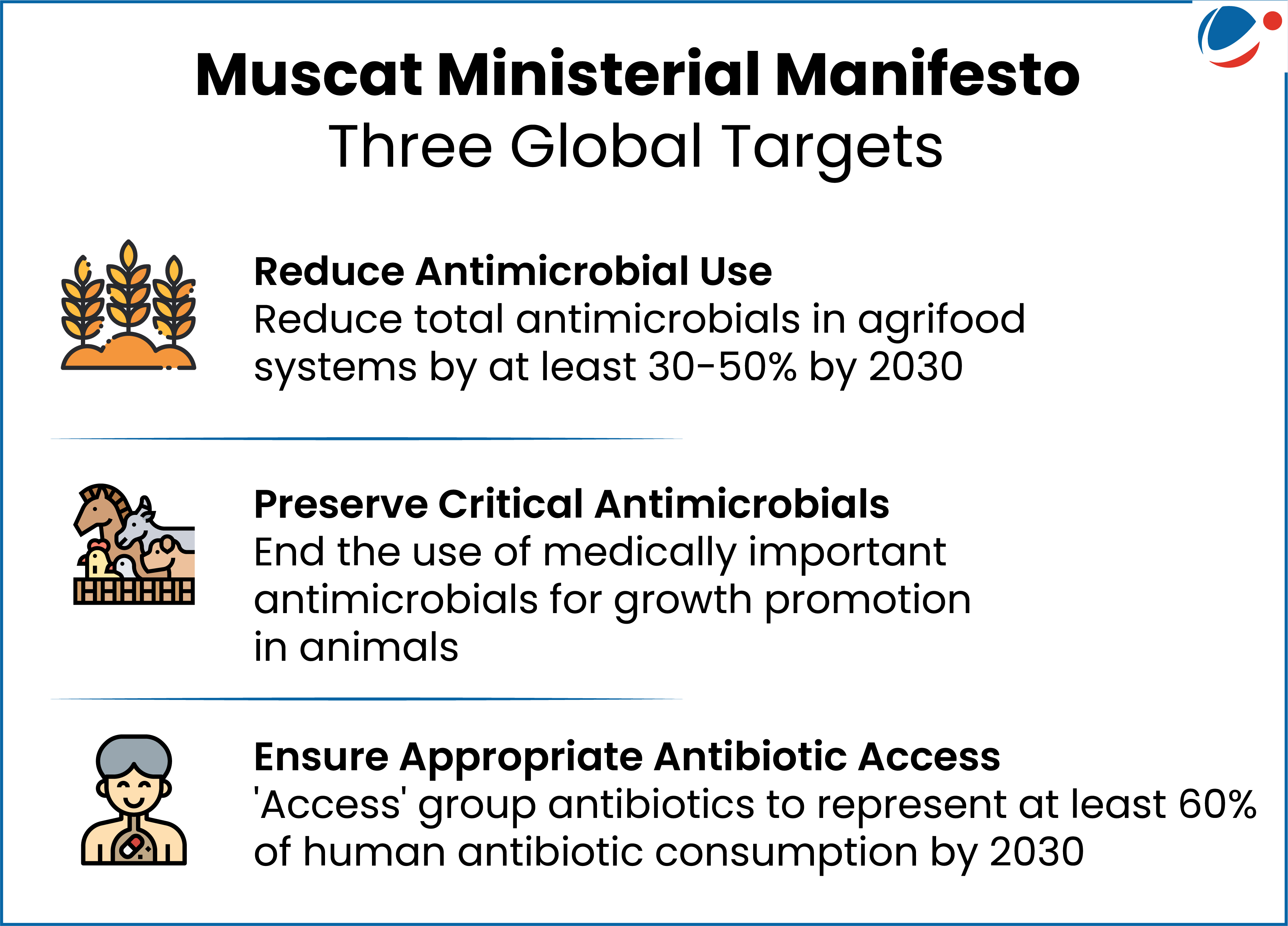To address growing concern around antimicrobial resistance (AMR), FSSAI banned use of specific antibiotics in production of meat, meat products, milk, milk products etc. from April 1, 2025.

- This follows India’s commitment to Muscat Ministerial Manifesto on AMR in November 2022 agreed upon at Third Global High-level Ministerial Conference on Antimicrobial Resistance (AMR).
- Overall objective of Ministerial Conference on AMR is to accelerate political commitment and generate contributions to the realization of the WHO Global Action Plan on AMR.
Antimicrobial resistance (AMR)
- It occurs when bacteria, viruses, fungi and parasites no longer respond to antimicrobial medicines which increase risk of disease spread, severe illness, disability and death.
- It is a natural process that happens over time through genetic changes in pathogens. It has been accelerated due to misuse and overuse of antimicrobials.
Why is AMR a threat?
- Threat to Human Health: Nearly 5 million deaths were somehow associated with drug-resistant infections in 2019 (World Organization for Animal Health).
- Economic Burden: World Bank estimates that AMR could result in US$ 1 trillion additional healthcare costs by 2050.
Way-forward to address AMR:
- Biosecurity measures to prevent introduction and spread of pathogens between farms;
- Promotion of farming systems that require low antimicrobial use, such as organic production.
- Other measures: One health approach, Vaccinations, alternative measures to augment production including probiotics and prebiotics etc.







